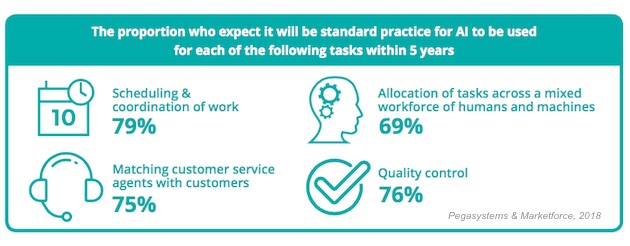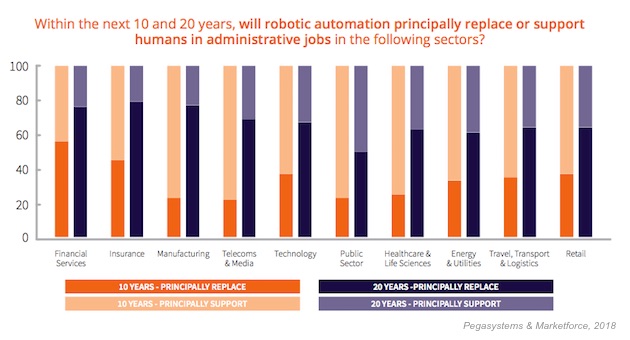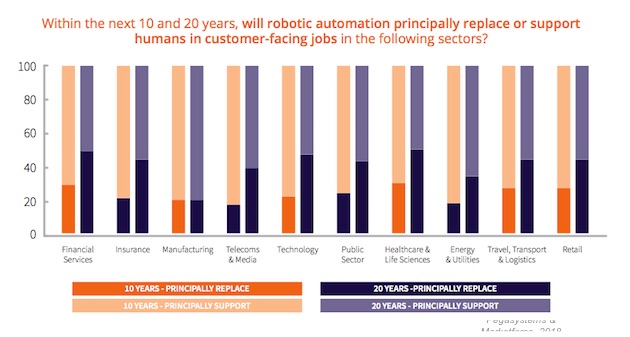Some 69% of senior business executives say they think the term "workforce" will eventually encapsulate both human employees and intelligent machines/platforms, according to recent research from Marketforce and Pegasystems.
The report was based on data from a survey conducted in 2017 among 845 senior executives who work for firms in the financial services, insurance, manufacturing, telecoms/media, public, healthcare/life sciences, energy/utilities, travel, transport/logistics, and retail sectors.
Some 64% of executives say artificial intelligence (AI) will eventually allow staff to perform more varied roles by enabling employees to find solutions to problems that would previously have been referred up the chain of command.
Fully 76% say support from AI will allow workers to make informed decisions at a more junior level, leading to a flattening of traditional hierarchies.
Some 79% of executives say it will be standard practice to use AI to schedule/coordinate work within five years, and 76% say AI will be used as part of quality control within the next five years.
Fully 70% of executives expect robotic (AI-driven) automation to principally replace or support human workers in administrative roles within 20 years.
Automation is expected to especially have an impact on human administrative jobs in the insurance, manufacturing, and financial services fields.
Some 41% of executives expect robotic automation to principally replace or support human workers in customer-facing roles within 20 years.
About the research: The report was based on data from a survey conducted in 2017 among 845 senior executives who work for firms in the financial services, insurance, manufacturing, telecoms/media, public, healthcare/life sciences, energy/utilities, travel, transport/logistics, and retail sectors.







